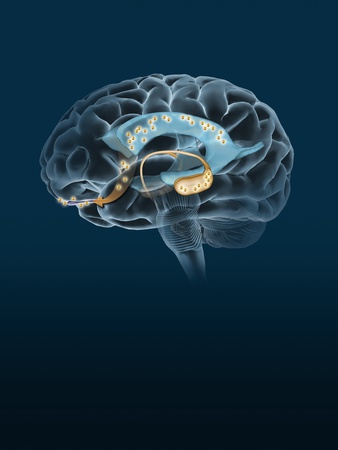From a paper by Fukui H, and Toyoshima K:
Experience has shown that therapy using music for therapeutic purposes has certain effects on neuropsychiatric disorders (both functional and organic disorders). However, the mechanisms of action underlying music therapy remain unknown, and scientific clarification has not advanced. While that study disproved the Mozart effect, the effects of music on the human body and mind were not disproved. In fact, more scientific studies on music have been conducted in recent years, mainly in the field of neuroscience, and the level of interest among researchers is increasing. The results of past studies have clarified that music influences and affects cranial nerves in humans from fetus to adult. The effects of music at a cellular level have not been clarified, and the mechanisms of action for the effects of music on the brain have not been elucidated. We propose that listening to music facilitates the neurogenesis, the regeneration and repair of cerebral nerves by adjusting the secretion of steroid hormones, ultimately leading to cerebral plasticity. Music affects levels of such steroids as cortisol (C), testosterone (T) and estrogen (E), and we believe that music also affects the receptor genes related to these substances, and related proteins [emphasis added]. In the prevention of Alzheimer’s disease and dementia, hormone replacement therapy has been shown to be effective, but at the same time, side effects have been documented, and the clinical application of hormone replacement therapy is facing a serious challenge. Conversely, music is noninvasive, and its existence is universal and mundane. Thus, if music can be used in medical care, the application of such a safe and inexpensive therapeutic option is limitless [emphasis added].
For readers of this blog, this will be nothing new, except that I believe that the authors are wrong in saying the Mozart Effect was disproved; rather, it turned out that the explanations are not as simple as we would like to believe, and therefore music’s effects on us are not black and white. Our bodies, and especially our brains, are continually surprising researchers, and so to say this early in the research that something is proved or disproved is premature at best. Reductionistic thinking has its place, but the interaction of music and our bodies and brains does not subject itself so easily to black-and-white thinking.
However, it is rewarding to see that the idea I have been promoting, music as an adjunct to traditional forms of medicine, is beginning to be more widely accepted. Perhaps one of these days I’ll start feeling less like a Cassandra and more like a visionary.
